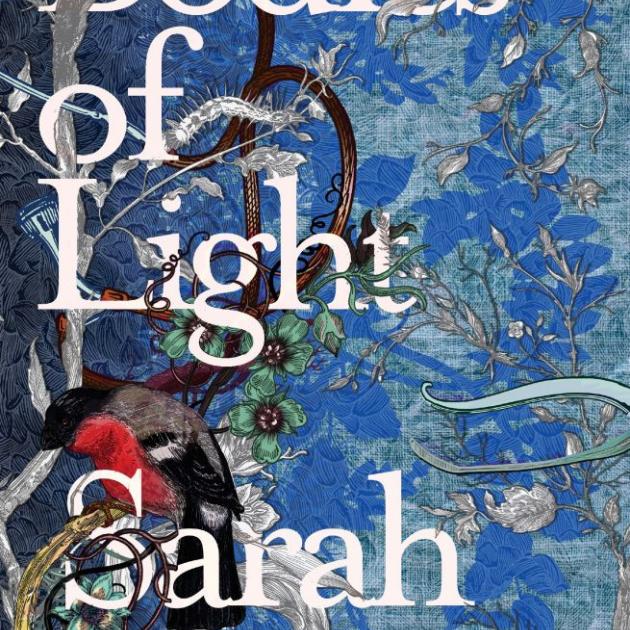
Moss gives us finely crafted characters, revealed through their conversation, actions and attitudes to social responsibility and the aesthetic and comforts of living.
Ally Moberly sits in the bedroom she shares with her younger sister May, listening to her father singing out of tune while he shaves and washes. She looks at the walls, papered in the briar rose pattern her father has designed and created, as if to stop princes getting in during the night. She sees the silky Persian rug on which she and May and often her father's friend Aubrey dress up and ''fly'' to Arabia. Her mother says this rug is far too good for the nursery.
Her mother's contribution is a text in a large black frame that her father says breaks the pattern and dominates the wall. It is from a Bible passage (Matthew 6:22), which says: ''The light of the body is in the eye: if therefore thine eye be single, thy whole body shall be full of light. But if thine eye be evil, thy whole body shall be full of darkness.''
From this comes both the title and the whole intense and purposefully crafted momentum of the story.
In this snapshot of Ally's life is the essence of the family, their living patterns and habits and their differences that create such difficulty for all of them, and Ally in particular. Ally's mother Elizabeth Sanderson has been raised by a mother driven to keep her girls from cosseting themselves.
''We must stop attending to our gross bodies. When our minds are occupied by such things, they are closed to light and space.''
She strives to have them keep their minds on higher things. Alas, Ally suffers from nightmares, anxiety and panic attacks and fainting spells. Elizabeth is mortified that her daughter would ''indulge herself in a fashionable ailment such as hysteria''. For Ally, her mother's responses to her behaviour are a form of neglect and abuse.
Ally's father is seeking to be a body of light through his work as a designer of wallpaper and drapes, an adviser on interiors and a cabinetmaker. Colour and texture are highly important to him. He is a painter and will not have electric light in the house, as he dislikes the brightness that it throws. He paints either in the early morning or by candlelight to get the colours he favours. He uses his girls as models, but also has life models he employs and drapes in silk and velvet fabrics. He believes he is entitled to comforts he can afford.
Ally is clever, so goes to school and is groomed to study to be a doctor. In her time boarding with her Aunt Mary, she softens and becomes accepting of her own worth. Importantly, she comes to accept moral compromises as valid as long as ''the eye is bright''.
Moss moves us through the tensions in the search to become a body of light with care and consideration. No character is portrayed as evil, rather simply operating from differing moral principles and expectations of life. In Ally, these are all experienced and considered. She emerges as a whole character who is poised to give to society as a doctor with high moral values.
- Willie Campbell is a Dunedin educator.


